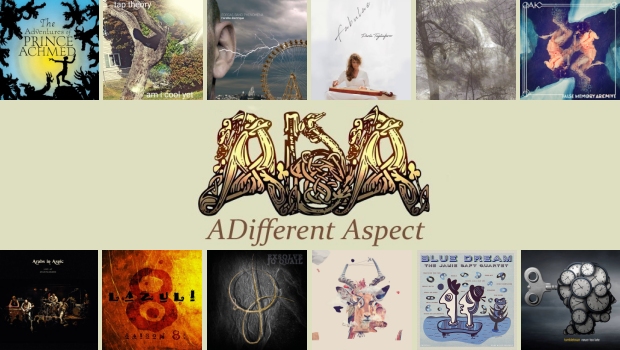In this update we feature:
> Phillip Johnston – The Adventures of Prince Achmed
> Tap Theory – Am I Cool Yet? [EP]
> Forgas Band Phenomena – L’Oreille Électrique
> Jack O’The Clock – Repetitions Of The Old City – II
> Paola Tagliaferro – Fabulae
> Oak – False Memory Archive
> Arabs in Aspic – Live at Avantgarden
> Lazuli – Saison 8
> Jo Quail – Exsolve
> El Tubo Elastico – Impala
> Jamie Saft Quartet – Blue Dream
> Tumbletown – Never Too Late
In an attempt to round up a few of the waifs and strays of 2018, we sent our team of seasoned cowpokes out on the trail, armed with a lasso each and requisite amounts of purple prose. The end result is an epic “A Different Aspect” for your delectation.
Roger Trenwith
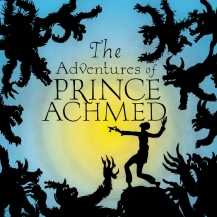
Phillip Johnston is a Chicago born avant-garde saxophonist who has specialised in composing soundtracks to silent films, The Adventures of Prince Achmed being the latest, released in the middle of 2018. The film in question was released in 1926, and is considered by many to have been the first feature length animation.
This is an upbeat, jolly affair for large jazz ensemble, with the lead being swapped between brass, reeds, and a rather bouncy organ, with occasional judicious use of electronica, increasing as the album progresses. The whole puts me in mind of Jerry Dammers’ Spatial Arkestra, wherein The Specials’ boffin reinterpreted Sun Ra. Like Dammers, Johnston often uses the organ’s jazz inflections and even goes for a bit of ska, and a some blues, the latter on the splendidly languid Aladdin’s Tale.
A rather fun ride!
Phil Lively
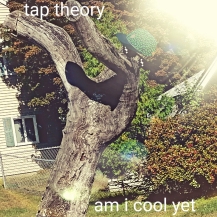
Josh Goldberg, one third of Chapman Stick Supergroup, GEPH, has branched out on his own. I have a soft spot for Josh and his music, his first solo album, albeit behind the facade of The Afro Circus, Journey To The Centre Of The Ear was my “audition spot” for TPA.
Am I Cool yet? is again using a pen name – Tap Theory. In his collaborative work Josh Goldberg does a lot of progressive, jazzy, rocky “fusion” instrumental stuff. For the first time, as far as I’m aware, we hear Josh add vocals to his work. This is a brave step and he pulls it off brilliantly with honest, unpretentious singing and carefully constructed harmonies. These are pop songs and purely as a frame of reference, I’d pop them in the same box as Talking Heads or Brian Eno’s early solo stuff.
The harmonies and melody on My Best Life are uplifting and just made me smile. Social awkwardness, the desire to be loved, getting old, every one of these songs made me smile to myself, whatever Josh intended. Whatever the lyrical content, I just like the sound of it.
If you want to hear straight-forward, melodic songs that appear to speak from the artist’s heart and that you can identify with, yet without even the tiniest hint of hipsterism, then this is for you.
Roger Trenwith
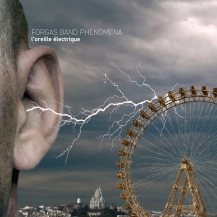
Multi-instrumentalist and composer Patrick Forgas has been making music for over 40 years, and for most of that time has helmed his band Forgas Band Phenomena, who have tickled our audio receptors with their pleasant tuneage across a handful of albums. L’Oreille Électrique translates as “The Electric Ear”, and sees the band groove on their distinctly Gallic take on the “Canterbury sound” over the course of five evenly paced instrumental tracks of similar length.
And therein lies the problem I have with this record. It is all very pleasant, but the similar groove and length of all the songs leaves me hard pushed to recall a standout moment from any of it. That’s not to say it is all very well played and superbly produced, for it most certainly is. Probably not odd enough for my inner avant-baboon!
Phil Lively
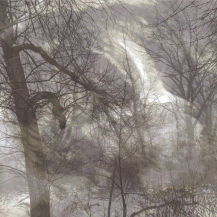
If you enjoy being exposed to music that is clever, played on unorthodox instruments (for a rock band) and on occasion slightly disturbing, then Jack O’The Clock, formed 10 years ago in Oakland, California, provide this by the bucket-load.
Their earlier work demands a certain state of mind. In parts, catchy, in others quirky, in places an awkward listen. I was only two tracks into Repetitions Of The Old City II before I suspected they had taken all of the best features of their previous work and ran with it. A further listen and E-Bow, chamber orchestra instrumentation, brass and echo, disturbing lyrics/vocals, ethereal and heavy passages, drums that sound like real drums, occasional songs with five beats to the bar, heavy music useful for bemusing George Ezra fans, and Guzheng – and more – are all featured.
This new album goes exactly where I would have liked it to go. Repetitions Of The Old City II ticks off a long list of desirable qualities that make it a truly progressive collection of songs.
Undoubtedly, the best £7.87 I have spent today.
Kevan Furbank
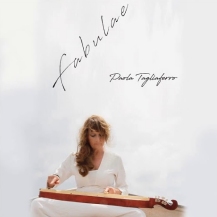
Light a joss stick and tinkle some Tibetan bells. We’re in witchy, Mother Goddess territory here, the sort of place once inhabited by Gilli Smyth of Gong, but sparser and more ethereal. Here you will find former pop singer turned living wood nymph Paola Tagliaferro, who wants to tell you all about she-wolves, bird maidens and the voice of the soul on an album about women being strong and spiritual. In her heavily-accented English she intones somewhat nonsensical verse to the accompaniment of little more than acoustic guitar, viola, little electronic murmurs and a selection of obscure folky instruments such as a Chinese table harp.
Paola claims to have been a pal of the late Greg Lake and his wife Regina, who writes a few words of encouragement on the album booklet (along with a certain Mr Steve Hackett). Lake’s work with the early King Crimson is clearly an influence – she covers Moonchild, wisely ending it before the original’s aimless twiddling (Ooh, controversial! – Ed). Holding everything together and giving it some structure is Pier Gonella on acoustic guitar, while Paola sings and half-recites slightly risible lyrics such as “Porcelain ducks and stars rain down” and “She cradles the wind in her womb”. That’s not where my wife cradles HER wind, I can tell you…
Paola has a voice that treads a fine dividing line between musical and grating, and sometimes she seems to have trouble fitting in all the syllables. I suspect this has something to with the fact that I’ve got the English-language version of the album – I’m sure it flows a little more smoothly in its original Italian.
This should all add up to a recording that’s too ridiculous for words but in fact there’s something hypnotic about it. The gentle musical arrangements are intensely appealing and you may find yourself slipping into a trance during Bird Maiden or The Day Of The Moon, or nodding your head along to a loping beat on The Swan Can’t Be A Duck and The Shaman’s Drum.
The album ends with a duet between Paola and her other mate, singer and composer Bernardo Lanzetti, on his song To Absent Friends. Compared to everything else here, this brooding lament is taken at a gallop and is easily the best track. It strongly suggests the next project should be an entire album of Bernardo and Paola. I’d buy it.
Phil Lively
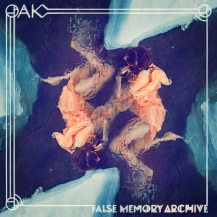
Bristling with appeal to proggers, the interestingly titled False Memory Archive has some haunting, interesting sounds and production that I wouldn’t normally associate with that genre. They’re mixing it up, including but not limited to what seems like a sax with a blocked spit-valve, banjo, synthesised strings, piano and Hammond, and I think I detected some rather subtly infused Mellotron, and Vocoder! All this is used to accompany their Simen Valldal Johannessen’s strong baritone voice, and a comparison to Mark Hollis’s vocals from ’80s band Talk Talk are inevitable, but he also put me in mind of a (slightly) less breathy Sam Smith. Don’t let that make you question the band’s originality, judge the band holistically.
They’re not averse to playing around with timing either with Transparent Eyes seemingly flipping time signatures around before settling on six beats to the bar, in addition to a few mini epic songs punctuated by layered vocal harmonies.
Oak clearly draw influence from classical music. Debussy’s Claire De Lune is referenced more than once, as song title and as music within Intermezzo which is inexplicably used not as the title suggests, as a short connecting instrumental passage, but rather as an introduction as it bleeds into the somewhat eerie sixth track, The Lights. With its Steve Jansen-esque drums and moody chords, this was the stand-out track for me.
John Wenlock-Smith
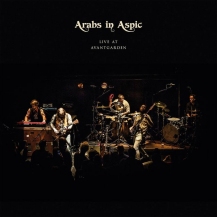
Arabs in Aspic are completely new to me yet this is their sixth album release and their first ever live album, featuring all the material from their last studio release, Syndenes Magi, alongside songs from earlier albums, all of which acts as a fine showcase for their retro-sounding take on progressive rock. With extensive use of Hammond organ and Theremin and intriguing vocal harmonies, this is a very organic sounding band with heavy emphasis on ensemble melody rather than on long soloing sections. Admittedly being sung in a foreign language does lose a bit in translation but the sound is very strong, and certainly captures one’s attention. This is a fine window into their strange world with some fine playing throughout, especially from Hammond organ player Magnar Krutvik, drummer Eskil Nyhus and his brother, bass player Terje Nyhus. The quartet was later joined by Stig Arve Jorgenson on backing vocals and Hammond organ, as Magnar changed to playing acoustic guitar and synth.
Tracks 2 and 3 called Mørket 2 and 3 respectively, both effectively show the potential of the band off well with some very tasty Hammond parts and some fine guitar work from Jostein Smeby and rhythm guitarist and Theremin player, Tommy Ingebrigtsen. The fourth track, Victim of Your Father’s Agony, is sung in English and is all the better for it, as it allows this English speaking listener to really hear what is going on.
All of this makes for some very interesting material that is well performed, recorded at a live festival in Trondheim, Norway in 2017, captured and released by Apollon Records. As my knowledge of Norwegian prog is somewhat limited I can’t really offer any comparisons but I do think it’s worthy of hearing if you can. This is an excellent album and one that would appeal to fans of more obscure and less mainstream progressive rock, and personally I really enjoyed it.
[Strange Frame Of Mind is not featured on this release (added to give you a flavour of the band – live)]
Jez Rowden

2018 largely passed me by musically, due to a massive slice of life getting in the way, so a huge ‘Thank You!’ is due to Santa (and the wife!) for helping me catch up on a release by one of my favourite bands.
French maestros Lazuli released their eighth album in March – and it’s a lovely piece of work; atmospheric, dynamic and as engaging as you’d expect, the mesmerising voice of Domi Leonetti weaving through the lush and eclectic instrumentation. It’s a warm and welcoming album that adds darker tones when required (Un linceul de brume being an example), industrial and ethnic influences still present, all delivered with confidence by a band at the top of their game. The unique sounds of Léode mix with guitar and keys, the drums of Vincent Barnoval deserving special mention – unfussy and to the point but always interesting and bang on the mark.
A great album, by a uniquely thrilling band who are best encountered live. You know what to do the next time they’re near your town…
Leo Trimming

Avant-garde cellist Jo Quail’s third release Exsolve is a fascinating album, creating strange atmospheres with imaginative experimentation, such as using the wood of the bow to hit the strings for percussive sounds. The electric cello with looping techniques allows her to broaden the range of sounds and tones conjured from her instrument.
Exsolve has three extended pieces, moving through various soundscapes. The film score-like Forge of Two Forms sinisterly transports us into a foreboding post-apocalyptic landscape, with Dan Capp’s electric guitars adding powerfully to the sonic palette. This shadowy world gives way to a melancholic conclusion – one can only imagine what emotions stirred such sounds from Quail’s soul. Eerie percussive sounds introduce the striking Mandrel Cantus which builds in tempo as Nik Sampson’s chiming guitar develops into a flowing solo amidst a growling maelstrom of looping cellos. Finale Causleen’s Wheel is the most challenging but possibly most rewarding piece. Imagine Picasso’s Guernica painting in sound, mournful whale song collides with menacing violent chords. Evoking modern art, Quail describes it as two people looking at a sculpture from different angles. Expand your world with this immersive, hypnotic album.
Mel Allen

I am ashamed to say that this album has sat in my to do pile for some time, and it appears I have been missing out on a little gem. No more, since discovering this quartet from Jerez de la Frontera in Spain, I have played it on a regular basis. They cite their influences as coming from symphonic prog, psychedelia, space, math and post rock to name just a few. These influences are evident in their music but appear to just be building blocks for their own sound.
Impala delivers some bright, crisp and clean sounding instrumental music which moves along at a good pace, intercut with some moments of delicacy here and there. The excellent rhythm section drives and anchors the songs, creating room for some great guitar work on this very interesting and enjoyable album.
Shawn Dudley
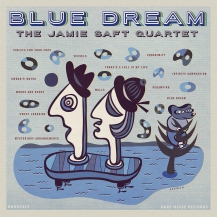
Avant-garde keyboardist Jamie Saft has definitely been prolific over the past few decades, with dozens of credits on a plethora of jazz, soundtrack and experimental recordings. On the highly enjoyable acoustic quartet recording Blue Dream, Saft keeps it primarily “in-the-pocket” with an album that is essentially a love letter to Coltrane’s classic quartet, Impulse! Records and the “new thing” movement of the early 1960s.
The influence of ‘Trane jumps out immediately on Vessels, as the bass pedal-point is a slight variation on his classic recording Equinox from 1961. There is also a performance of the oft-neglected standard Violets For Your Furs that ‘Trane famously recorded in 1957 on his debut album.
Like most of the music on the Impulse! label, the album is a mix of modal vamps, Latin grooves, post-bop experimentation, some well-chosen jazz standards and blues. Saft has chosen a muscular trio of studio pros to help him pay homage to one of the most important eras in jazz; saxophonist Bill McHenry, bassist Bradley Jones and drummer Nasheet Waits.
The recording eschews longer performances in favour of song-length statements allowing the group to tackle a wider range of themes. The album works beautifully and these players obviously feel this era deeply as the results are vibrant and inspired. My favourite jazz release of 2018.
Leo Trimming
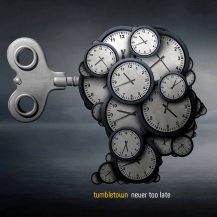
I blame my editor – ‘You’d like this one’ (heheh… Ed). I listened and was mystified. Part of me said ‘You should like it’, but mostly my brain was screaming ‘NO!’
It’s got the classic ‘Prog’ tropes I usually like (indeed… Ed) – epics, sweeping keyboards, guitar solos and nifty drumming. Tumbletown are undoubtedly fine musicians. However, in my view one can gather the all the correct ingredients together, it does not necessarily mean you will bake a delicious cake.
This album sounds so clichéd, from Floydian intro Prelude, and then we hear the annoying singing and painful lyrics of One Giant Stage. A decent vocalist is crucial, but I struggled with this droning voice. Epic Transatlantic sums up the album – some interesting bits but it’s not coherent and fails to hold attention as it aimlessly meanders. The ponderous Don’t Leave Me Now says it all for me. You have to have some balls to try singing without irony the mouthful “I used to be so driven but I don’t know why I cannot find my muse anymore”. My response was “Keep Looking!”
Strangely, some will love this album, but I believe this is the sort of album which gives modern Prog a bad name – Avoid.

